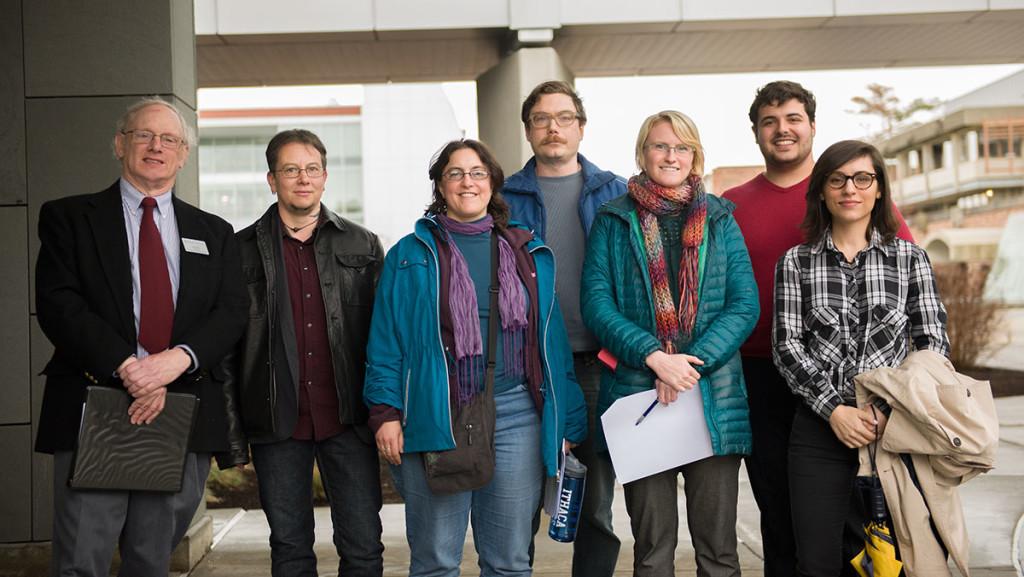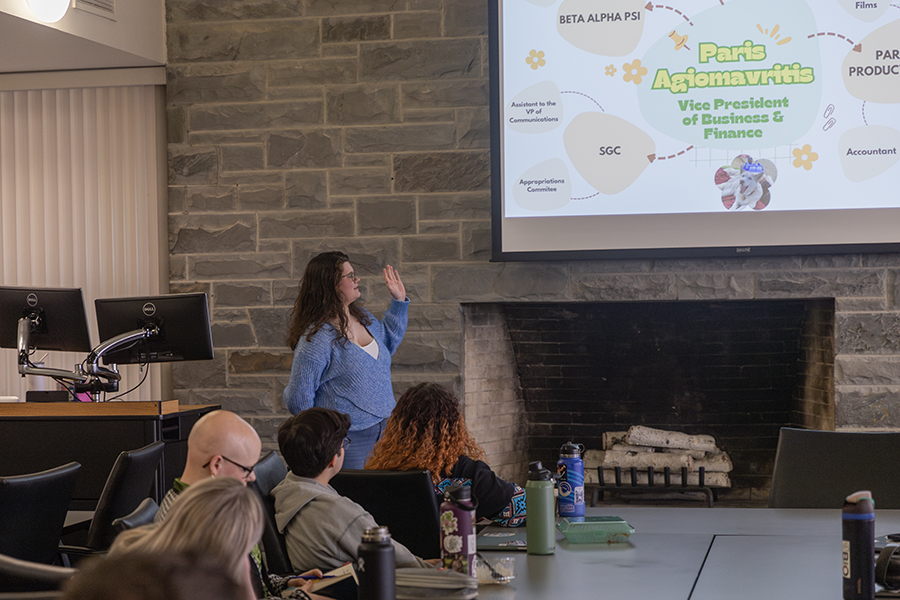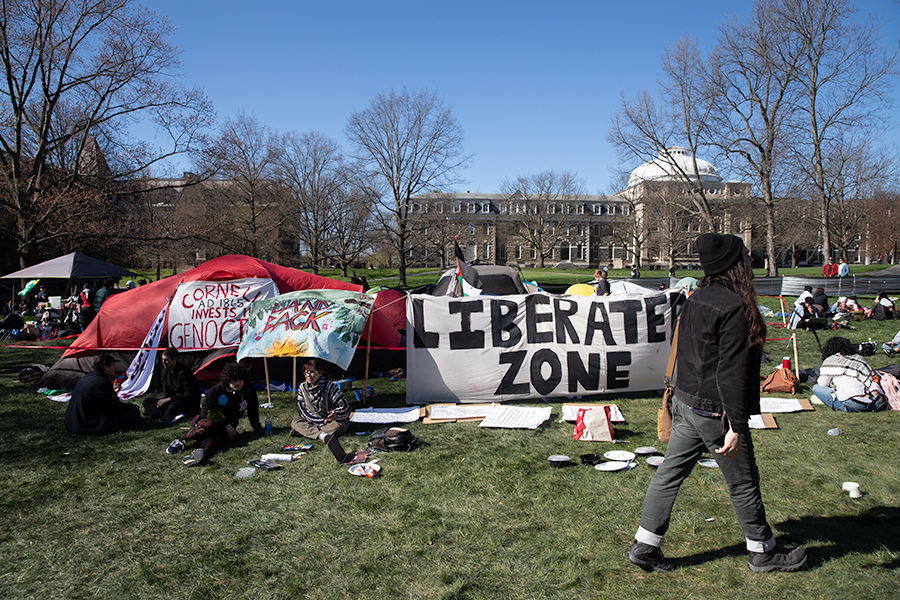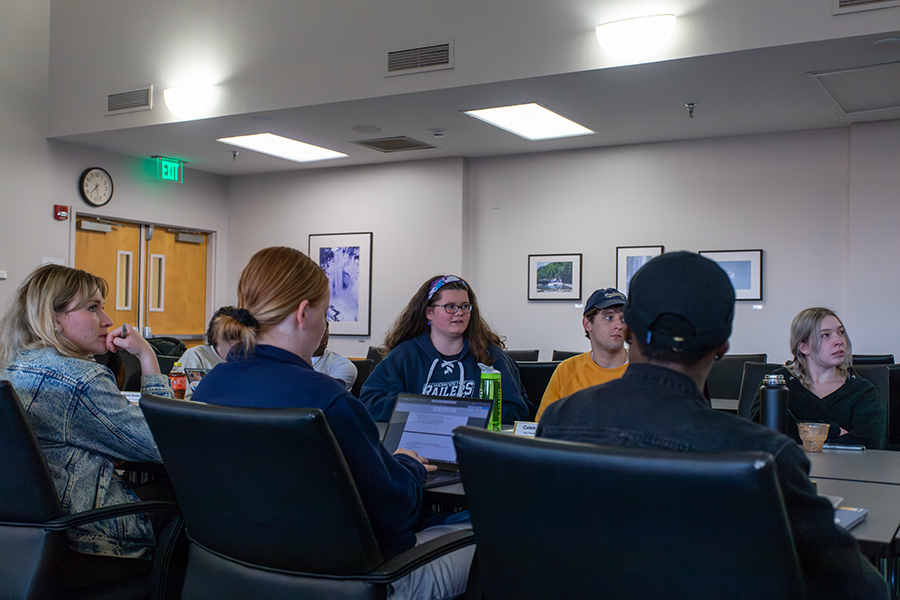Members of the Ithaca College administration have denied a request by full-time contingent faculty to join the existing part-time faculty union.
Full-time contingent faculty members — non-tenure-track faculty members — at the college met with Nancy Pringle, senior vice president and general counsel for the Division of Human and Legal Resources, and Benjamin Rifkin, provost and vice president for educational affairs, April 7 to ask that they be recognized as a collective bargaining unit.
David Maley, senior associate director for media relations at the college, stated via email on behalf of the college that it is the college’s position that it is “not appropriate” for contingent faculty to be part of that bargaining unit.
“The college respects the right of these faculty to decide whether or not they wish to be represented by an external third party,” Maley wrote “However, the college also believes that direct communication is the best way to work together to find solutions to any issues presented by contingent faculty.”
According to an announcement by Service Employees International Union Local 200United, the organizing group assisting the contingent faculty, an “overwhelming majority” of full-time contingent faculty members who are on limited-term contracts at the college has signed documents expressing its support to join its part-time colleagues in SEIU.
Shoshe Cole, assistant professor of physics and astronomy, said full-time contingent faculty will still move forward by filing for a union election through the National Labor Relations Board.
“The campus community showed their support for the part-time faculty’s right to form a union,” Cole said. “We expect that that’s going to be the same for the full-time contingent faculty.”
Although the full-time contingent faculty can move forward with its efforts to join the part-time faculty’s union without approval from the administration, if the administration had supported its decision, the process could have been expedited, David Kociemba, adjunct professor at Emerson College in Boston and member of the American Association of University Professors committee on “Contingency and the Profession” said.
Kociemba said it is common for administration to deny union efforts before those trying to unionize go to the NLRB.
“It’s a fairly typical maneuver. You would have to be very, very faculty-friendly as an institution to skip that,” he said.
Members of the organizing committee cite a lack of job stability as one of their primary grievances. They also want greater control over curriculum and course offerings, better integration into their respective departments and a role in the governance of the college.
The organizing committee anticipates filing with the NLRB sometime next week, in order to give the college time to reconsider.
“We hope that the college will choose not to create more division and will instead choose to work with us,” Cole said.
Rachel Gunderson, an instructor in the Department of Health Promotion and Physical Education and a member of the organizing committee, said she believes the administration will come around to supporting the group.
“We fully expect them to do the right thing,” Gunderson said.
The Association of Governing Boards of Universities and Colleges released an investigative study in its “Trusteeship Magazine” in 2013 called The Changing Academic Workforce. The report found that almost 50 years ago, tenured and tenure-track positions nationwide made up approximately 78.3 percent of faculty at nonprofit colleges and universities and that non-tenure-track positions accounted for about 21.7 percent.
However, by 2009 these numbers had almost reversed. Tenured and tenure-track faculty had declined to 33.5 percent, and 66.5 percent of faculty members were ineligible for tenure.
At the college, full-time contingent faculty’s beginning to unionize comes almost a year after part-time faculty members at the college announced they was moving forward with their own plans to unionize.
The AAUP also reported that full-time non-tenure-track appointments are increasing nationwide. The AAUP has a committee on Contingency and the Profession, which is charged with examining the results of a greater reliance on contingent faculty at institutions.
Kociemba said higher education has transformed in the past two years to having a majority of part-time faculty.
“They don’t have access to benefits, and they don’t have the academic freedom to fully challenge students, which is what they’re there for,” Kociemba said.
Kociemba said that usually when full-time faculty elect to unionize, the institution will experience positive benefits such as less turnover, a better work environment and a greater commitment to the institution and the community as a whole, improving the overall quality of a student’s education.
On April 15, 2015, part-time faculty filed a petition to unionize with the NLRB, and formally elected to unionize May 28, 2015, with 76.4 percent of voters favoring the union. Administration at the college initially pushed back on the efforts, saying in an announcement that they would prefer to have a “direct working relationship” with part-time faculty rather than through a union.
Since its unionization, part-time faculty has been bargaining with the college since October 2015. Some of their demands have been tentatively settled, while the college has pushed back on others, according to the part-time faculty.
Peter Rothbart, chair of the Faculty Council and professor of music theory, history and composition, could not be reached for comment.
The college’s organizing efforts follow victories for contingent faculty in surrounding areas, including Wells College, The College of Saint Rose, Schenectady County Community College and Siena College.
This story was updated at 5: p.m. April 8 with more information.








